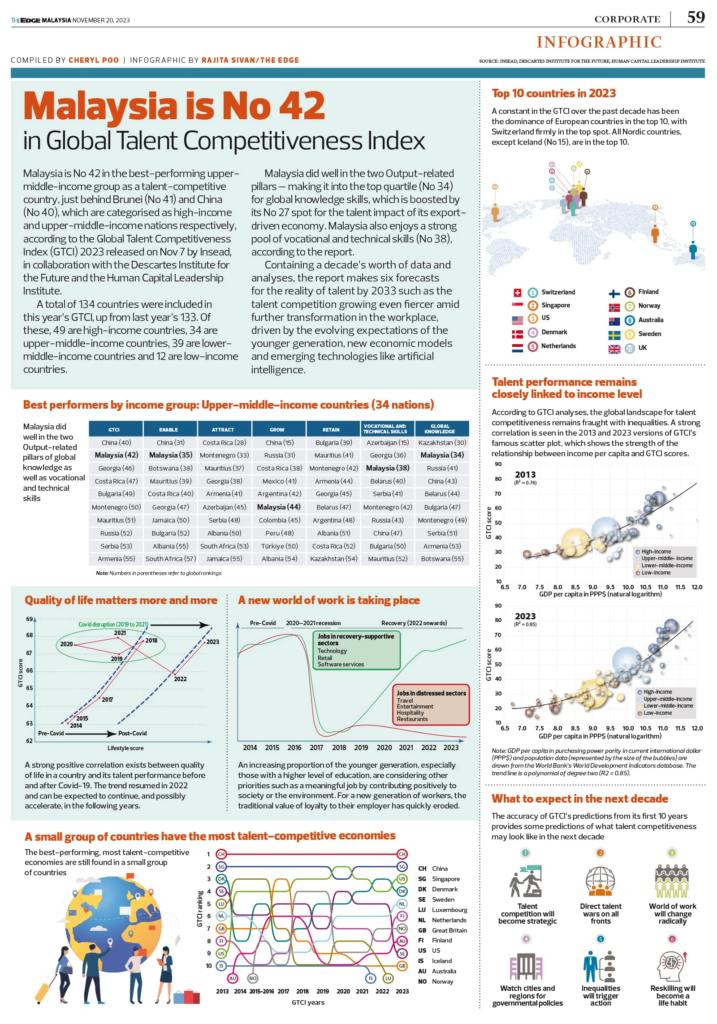Many had high expectations of Nvidia Corp chief executive officer Jensen Huang’s maiden visit to Malaysia last week.
Talk was rife on possible investments in data centres in Malaysia after Huang’s visit to Singapore where the media reported that Nvidia could invest in an “iconic” artificial intelligence (AI) site in the city state.
Huang had met Singapore Prime Minister Lee Hsien Loong and executives of the Economic Development Board where he hinted that a new supercomputer could be built there.
This further strengthened the views on potential data centre investments in Malaysia.
Minutes before Huang’s media roundtable, news broke that Nvidia was in advanced talks with YTL Power International Bhd to build AI infrastructure in Malaysia.
Clad in an all-black outfit and his staple leather jacket, the tech executive sidestepped queries on Nvidia and YTL.
Instead, Huang stressed Malaysia’ s potential as a hub for AI “manufacturing”.
“YTL is an extraordinary company and has incredible leadership and legacy. This is a very important hub for Southeast Asia’s computing infrastructure.
“It requires access to facilities and power which is extraordinarily important, and YTL could play a great role in that,” he said.
Huang said an AI data centre was a new type of centre, unlike the old ones which were designed mainly to hold data and run applications.
“The AI data centres are factories which take raw data and transform it into really valuable data.
“That transformation is basically like manufacturing and Malaysia is excellent in manufacturing.
“It is a regional excellence in manufacturing and now, combined with data centre technology and Nvidia’s AI capability, it could become a hub for manufacturing.”
The Taiwanese-American who pioneered graphic processing units-accelerated computing used in generative AI told the media that he would not miss the opportunity to meet the only leader in the world who had AI in his name, referring to Anwar’s initials.
“I am an AI guy so I cannot miss this opportunity. We are going to talk about how Malaysia can play a vital role in the advancement of AI in the region.”
On Friday evening, YTL announced its collaboration with Nvidia to build the AI infrastructure that will bring the fastest supercomputers to Malaysia by the middle of next year.
The AI infrastructure will be hosted in the YTL Green Data Center Park in Kulai, Johor, a 500MW facility developed by YTL that will be uniquely powered by an equivalent amount of on-site solar energy.
YTL Communications Sdn Bhd, the telecommunication subsidiary of YTL, will own and manage the AI infrastructure that will provide AI computing services to the nation.
The AI infrastructure will provide the foundation for scientific research and the development of solutions and applications that will accelerate Malaysia’s progress towards becoming an AI nation.
YTL will not only provide green, energy-efficient AI infrastructure to scientists, developers and startups across the nation, but it will also create AI-specific applications and services for its customers.
YTL plans to use NVIDIA NeMo to customise and deploy a Malay language foundation model.
Source: NST
Nvidia CEO: Malaysia can be hub for AI ‘manufacturing’
Content Type:
Duration:



